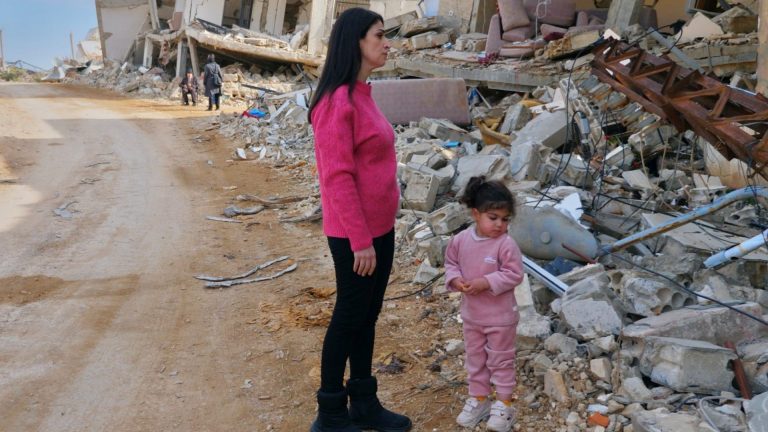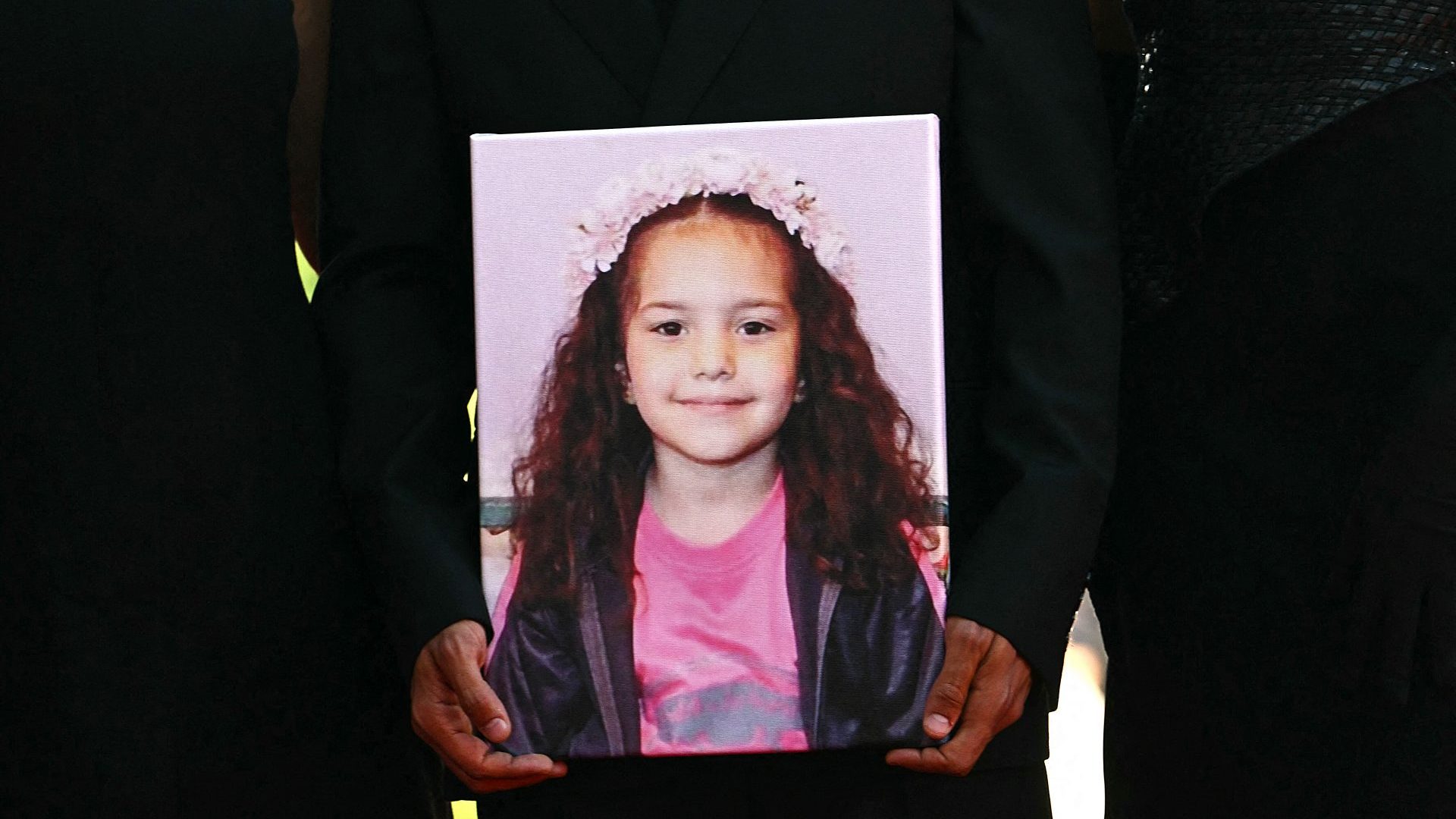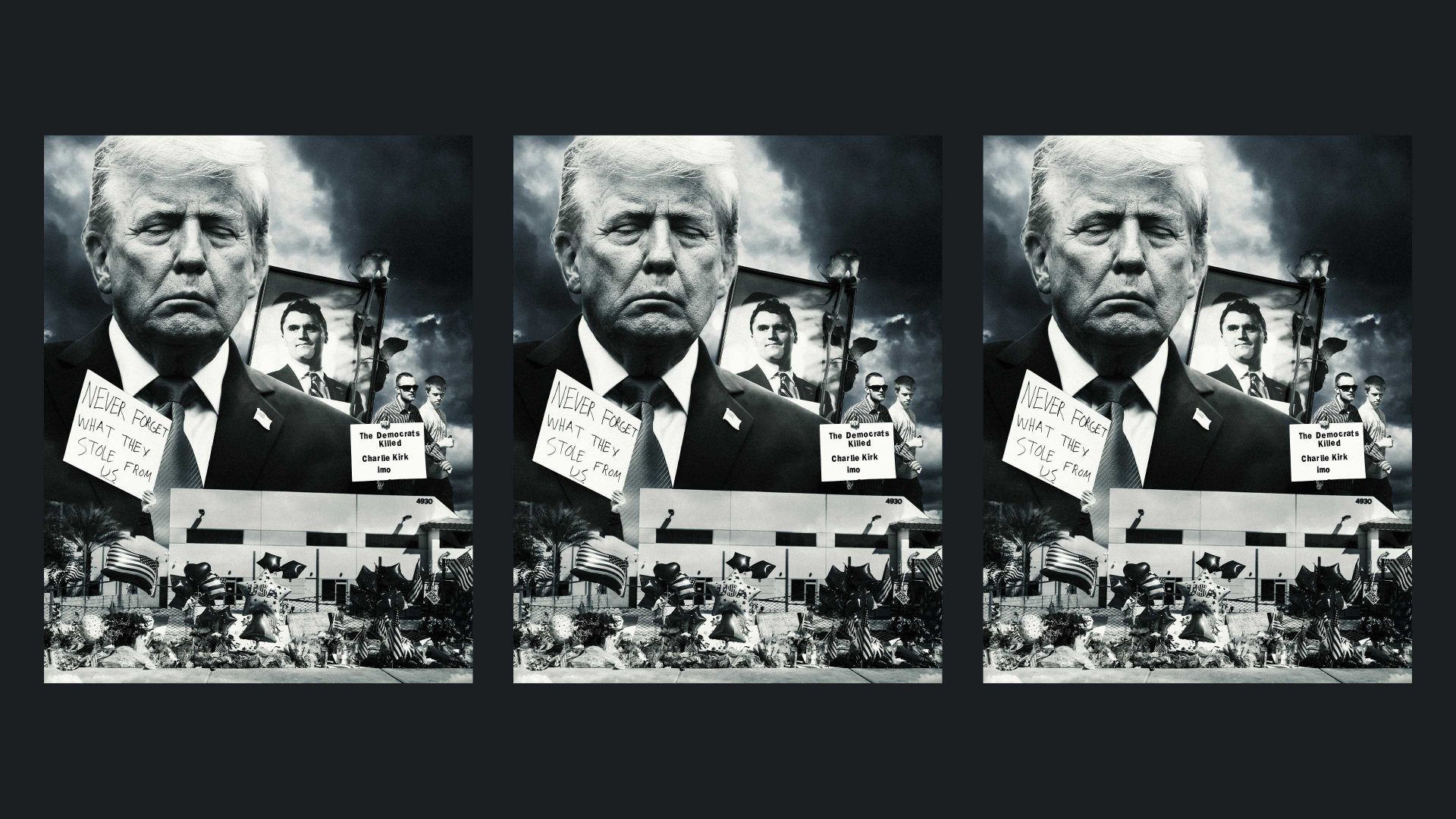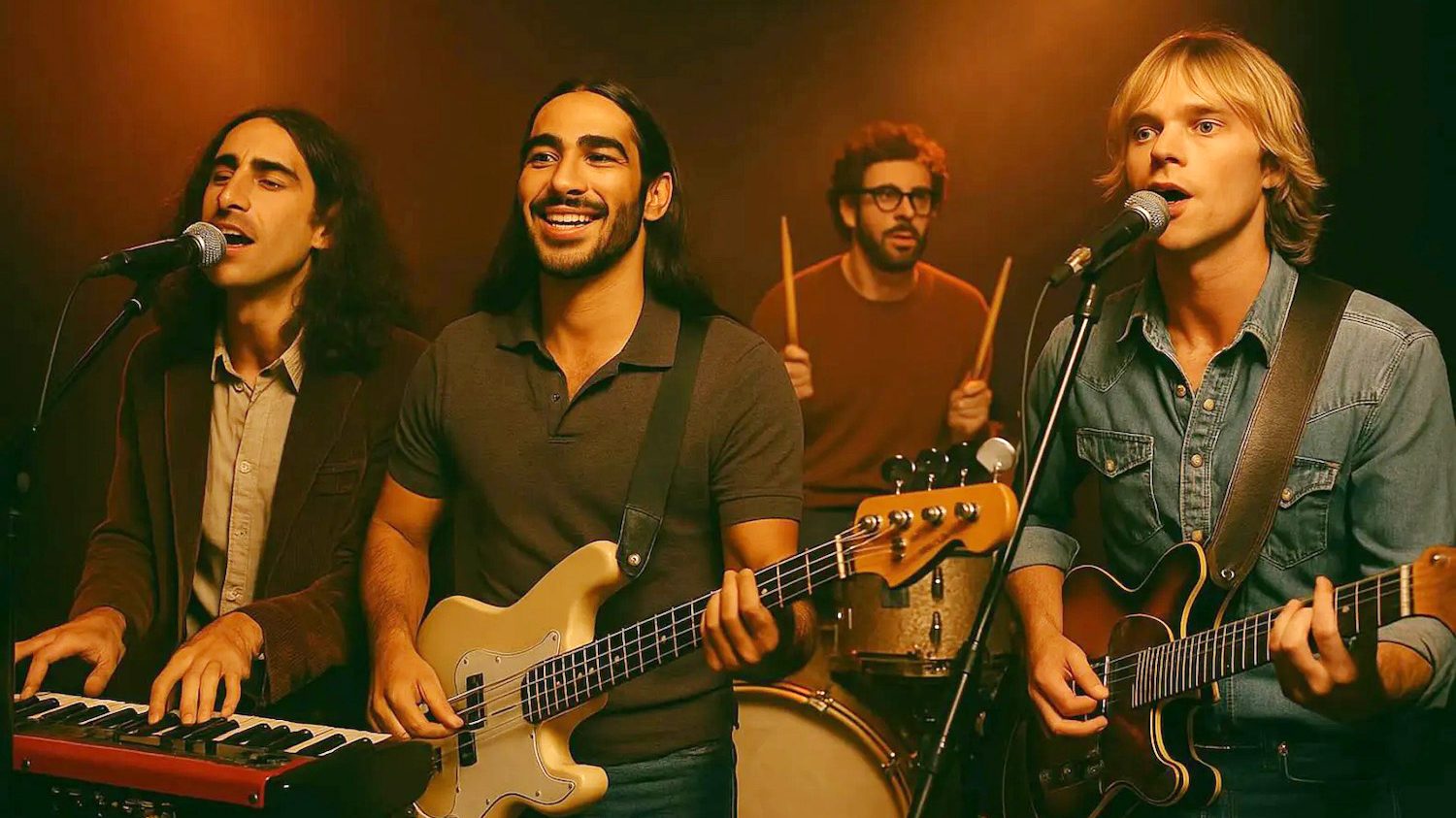When I meet Kaouther Ben Hania, the Tunisian director of the acclaimed Gaza film The Voice of Hind Rajab, she has just received an award from the Italian Red Cross. She sends a message to a WhatsApp group which includes workers from the Red Crescent organisation featured in the film. “Cinema is not something that they know, but the Red Cross is something that they understand, so they are very happy,” she says.
I tell her about seeing The Voice at a morning press screening at the Venice Film Festival. These are usually very professional and somewhat cool affairs, but her film – a dramatisation of the last hours of a five-year-old child as she sheltered in a car in occupied Gaza – broke the audience. Some critics felt unable to leave. There was clapping, but also sobbing.
Then, at the gala premiere, the film received 22 minutes of applause. “It was surreal,” Hania says. “I knew that the movie was emotional, but to this extent… it was beyond my expectations. I was overwhelmed by what was happening. When will they stop? And then I saw an employee of [the cinema] asking us to leave because there’s another movie. So they stopped because we were kicked out.”
The Voice of Hind Rajab ended up winning the Silver Lion at Venice, the festival’s second-highest honour. I’m sure it will win more. It is reminiscent of the kind of political cinema of the 1960s: Gillo Pontecorvo’s The Battle of Algiers comes to mind. It’s art that blends with activism.
The film takes place entirely in the offices of the Red Crescent in Ramallah, where workers desperately try to coordinate the girl’s rescue. Her extended family members have been killed by an Israeli tank while trying to evacuate from northern Gaza. An ambulance waits eight minutes away, but in order to safely proceed, they first need to receive a safe route via the IDF, and that can only come via intermediaries. This takes hours – and all the time Red Crescent workers speak to Hind on the phone, trying to comfort her.
So, I ask Hania, can cinema change the world? “I’m asking myself this all the time,” she says. “Before this movie, I was feeling a sense of helplessness towards what is happening in Gaza and what I can do.
“Do movies change the world? The answer is no. Movies can do something else, which is also important, that is change the way we see the world. Creating a kind of smooth change is in the long term, but people are dying every day.
“So as a film-maker, I’m confronted with the evil of the situation. Gazans are dehumanised. Cinema can give them a face, a name, a story, which is the bare minimum.”
Suggested Reading


Crime scene cinema from Gaza
In the film, we see Red Crescent workers, played by Saja Kilani, Motaz Malhees, Clara Khoury and Amer Hlehel, desperately trying to comfort the child on the telephone while at the same time going through the complex procedure of sending an ambulance to rescue her. Hind’s voice is taken from actual recordings, something that has proven controversial among some critics. For Guy Lodge of Variety, “the ethics and execution of the concept are questionable.”
Hania says she has heard several objections like this, but is fierce in her dismissal of the criticism. “I talked to Hind’s mother, and she is an incredible woman, the meaning of resilience, and she told me: ‘I don’t want the voice of my daughter to be forgotten.’
“I understand it’s a little uncomfortable for some people, but this movie is not done to make people comfortable, because people in Gaza are not comfortable. They are being killed. It was a choice of honouring Hind’s voice, putting it at the centre of the movie.”
Hania also believes that using a child actor would have been in “bad taste” and also pointless in the age of the internet when the videos and audio are already out there. “Cinema is no longer at the centre of the image as it was in the 20th century. We have social media, the internet, TikTok, so the attention of your eyes is everywhere. All this panoply of information is not information: it’s amnesia. It’s being desensitised.
“So, to talk about memory, to have time to develop one emotion; to develop a connection – because social media is not about connection, it’s about zapping and forgetfulness – but cinema can give this connection. And cinema was, and I hope, it will be the place for empathy.
“You connect with the character. They struggle. You feel for them. You almost become them. So it’s about connection and empathy. I’m not saying that cinema is the saviour of the image, but at least you have time to connect and to experience empathy.”
As for accusations that the film is overly manipulative in triggering those emotions, Hania asks: “What does cinema do? Cinema is about triggering emotion. Put cinema aside. Should what is happening in Gaza not trigger emotion? It should trigger indignation and shame.
“The first emotion I got when I heard Hind’s story was a deep sense of helplessness. When I heard Hind, she was asking for help. And, for a millisecond, I was like: ‘What can I do?’ As if she’s asking me for help.
“So I thought immediately that the best way to tell this story is the point of view of the people she’s asking for help from: the Red Crescent, because they are the best people to translate the sense of helplessness and anger, which is the case of many people all around the world. Gaza is asking for help.”
The real-life Red Crescent workers who talked to Hind while coordinating the rescue effort from Ramallah, 50 miles away (because they had to leave Gaza) were also helpless. Hind asks one of them to get in a car and come and get her. “Ask your husband to come,” the child begs. It is a heartbreaking moment.
The Red Crescent workers provided invaluable information for Hania. “Their story belongs to them,” she says. “They lived it. It’s the story of Hind, her mother, also. It’s not my movie alone.
“They were with us all along. I started by contacting them first to have their approval to tell this story, because I wanted to use their real names and their voices. Also, because the actors rehearsed [using] their voices, and we see the real footage at the end.
“They told me about a lot of things happening that day, and especially the Kafkaesque procedure of coordination. I was shocked by all the rules put in the way, and even if you follow them, nothing is guaranteed. This is the definition of occupation. You have rules to make your life impossible.”
We never see the violence in the film – we hear it and we see the aftermath, but that’s just as shocking, if not more so. Hania says: “I always trust my first encounter with the material, and the first time I heard the recording, it was so horrible and tense for me, I didn’t need any image. Everything was in the recording.”
Despite the horror of what was being depicted, Hania found the writing of the film relatively easy. “It wasn’t difficult at all. I’m saying this with sadness, because the stories in Gaza are beyond fiction. They are real. If you want a horror movie: Gaza. If you want a war movie: Gaza. If you want a thriller: Gaza.
“It’s beyond what a genius screenplay writer can write, but it’s happening, and this story is like it was already. Maybe it’s obscene to say it this way, but the event as it happened, was like a movie. It starts with the killing of the cousin. We call this in screenplays, “writing the inciting incident.”
“It’s horrible to say this. And at the end, the ambulance is bombed 50 metres away from the girl’s car. It’s just insane!
Throughout the conversation, I try to maintain a balance. I ask if she can imagine a similar film being made about the massacre of October 7. “Everybody has the right to do the movie they want to do,” she says. “Cinema is about choosing a singular story. So the fact that The Voice of Hind Rajab exists doesn’t forbid other stories to exist. We need stories.”
I ask if it could be shown in Israel. “Can I show it in Gaza?” Hania replies. I stammer that it would be great to show it in Gaza, but of course, there haven’t been cinemas in Gaza for some time. She answers: “I can’t show it in Gaza, so I won’t show it in Israel.”
The film has been seen by Red Crescent workers in Ramallah and some Gazans. “I received a very moving letter from a poet from Gaza. He wrote a letter to me, which was so moving about what is happening here,” Hania says. “And Hind’s mother, we are in contact every day.”
Soon after Venice, Hind’s mother, Wissam Hamada, was forced to flee her house, which was in a neighbourhood being bombed. American journalist Qasim Rashid had been due to interview her and accused the IDF of deliberately targeting Hamada. “Killing her daughter with 355 bullets wasn’t enough, they are still pursuing her,” says Hania.
In such a context, it’s difficult not to find criticism of the film as triggering to be anything other than an obscenity. The Voice of Hind Rajab will be heard.




